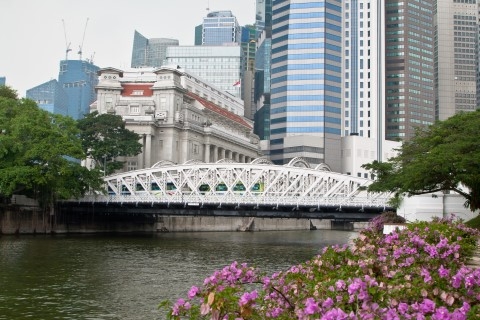
Office sector weathers slumping stock markets better than Hong Kong
Rents can climb further to an estimated 8% in 2019.
Singapore’s office sector is expected to maintain its positive momentum even against increasingly volatile stock market conditions as it outperforms most of its regional peers like Hong Kong and Seoul, according to real estate consultant Colliers.
With the finance sector representing 43% of the Straits Times Index (STI) and 45% of prime office stock in CBD, it would be easy to conclude that the relationship between slumping stock markets and office rents would be high in the Lion City as leasing costs will be pulled down by rattled equities.
Also read: Here's how the potential US$200b trade war tariffs put heat on Singapore's banks
However, data gleaned from STI index market and Grade A office rents buck this trend as there have been significant deviations between stock market performance and direction of rental costs especially in the periods between June 2012 and June 2014, June 2015 and March 2017.
“Our ANOVA testing shows a correlation coefficient (R) of 0.38 and a coefficient of variation (R²) of 0.14. This represents a relatively low degree of correlation,” the report's authors said.
Amongst Asia’s financial centres, the relationship between stock market performance and Grade A office rents in CBD is strongest in Hong Kong and Seoul but weaker in Singapore and Shanghai, Andrew Haskins, Colliers Asia head of research said in a statement.
The insulation of the local office market from the global equities rout is partially because the Singapore market has long been characterised by tightening vacancy, limited availability and stable rental growth since 2014, observed Colliers.
Singapore’s Grade A office rents in the CBD are poised to extend their positive growth trajectory over the next two years, with average rents forecasted to rise to 8% in 2019 and 5% in 2020.
Also read: Tightening office vacancy rates loom in 2022 as tenants snap up limited supply
Hong Kong, where financial stocks have a 48% weighting in the Hang Seng Index (HSI) and financial tenants occupy half (54%) of Grade A office space in CBD, features the closest correlation between the HSI and Grade A office rents with a correlation coefficient (R) of 0.86 and a coefficient of variation (R²) of 0.74. As a result, Grade A rents in Central/Admiralty are expected to drop by 3.8% in 2019 in contrast to Singapore’s positive leasing momentum.
“Whilst we acknowledge the risk that our rent forecasts may prove too high if turbulence in stock markets continues and results in reduced demand from finance sector occupiers, Singapore looks less vulnerable than Hong Kong in particular to pressure on CBD rents next years,” added Colliers.
























 Advertise
Advertise






